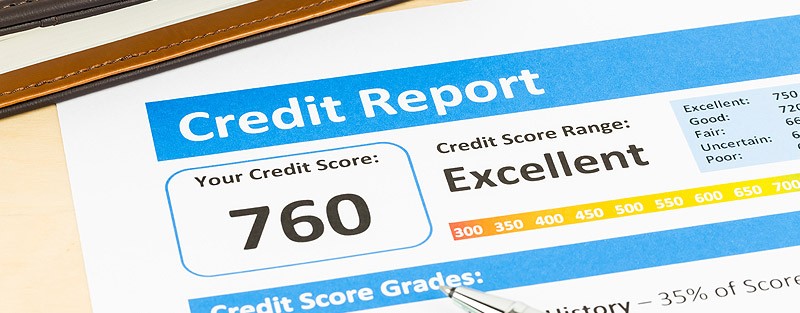
I know from personal experience that investing in real estate is the best way to build wealth. However, to succeed, you’ll need to take certain precautions. This includes making renters background checks and security deposit management a top priority. I can’t express enough how important it is to have either yourself or your property manager have a streamlined system in place that handles these two elements.
Why is this all so essential, especially when it comes to safeguarding your investment? Well, conducting thorough tenant background screening and using best practices for handling tenant deposits can mean the difference between racking up thousands of dollars in legal fees and having your property destroyed to the opposite of everything running smoothly, with rental checks flowing in like clockwork every month.
The bottom line is that every landlord should take these steps seriously because diligently vetting tenants helps landlords select reliable people who are likely to pay rent on time and take good care of the property. In addition to this, proper collection and handling of security deposits ensures that both the landlord’s and tenant’s interests are protected, all while upholding legal standards and preserving trust and transparency.
Ok, now that you’ve had a quick overview of the topic, let’s dive in to tackle some specifics. This way, you’ll be well-informed about protecting your investment before a tenant even steps foot into your property.
1. Tips for Conducting Tenant Background Screening to Protect Your Investment

Pre-screening tenants enables landlords to make informed decisions when trying to place qualified renters. This practice includes reviewing the applicant’s rental history, employment status, and possible criminal record, as well as other important elements. I have a long history of owning rental real estate, and from my experience, I can tell you that the best thing you can do is hire a property manager or a company that specializes in screening renters. I’ll discuss some aspects of this below to jumpstart the process for you.
How to Select a Reputable Tenant Screening Company
Before diving into the topic at hand, I’d like to mention two important points. First, if you already have a property management company handling your rental, then you shouldn’t have to look elsewhere for tenant screening services. Your PM should already have a process in place for checking out potential renters.
If you’re not familiar with property managers, they’re an invaluable resource that keeps real estate investments protected, on track, and profitable. They handle all aspects of security deposits and all things pertaining to the tenants. With that said, here’s one article I wrote that you’ll want to check out to better understand their role – Financial Advantages of Using a Property Management Company.
Second, if you’re the one managing the property, please don’t try to screen your rental applicants yourself. Even if you think you’re a good judge of character, it could end up being a costly mistake. I’m saying this because, over the years, I’ve heard some pretty bad tenant horror stories where investors didn’t employ professional screening services to save a few extra dollars. In the end, they lost thousands instead of a small fee paid to a tenant screening company.
Ok, let’s look at a few tips on finding a good company that can tackle the job for you.
Ask Fellow Investors to Recommend a Good Renter Screening Service
Your best bet would be to ask other investors who have been in the game awhile who they use. This way, you’re not going into this blindfolded, hoping for good results. There’s too much at stake, so getting a reliable tenant in your property right off the bat to safeguard your asset should be your goal. If you’re new to the real estate sector and don’t have any trusted investors you can ask, then join a real estate investor’s meetup group.
You’ll find more than enough people within a real estate group who can give you several tenant screening company references. You’ll most likely hear a few stories from their humble beginnings, complete with tales of drawn-out vacancies, as well as tenants who had to be evicted. I created a piece titled, Do Vacancy Rates Matter in Real Estate Investing? If you’ve never had to deal with one before, it’s worth checking out.
For those who haven’t been to a meetup group such as this before, know that it’s common for investors to collaborate on going in on a rental property together. If this sounds like something you might be interested in, you can become well-versed on the topic by reading my post – How to Buy a Property with Multiple Investors.
Utilize Online Tools or Companies that Generate Resident Screening Reports
There are many online screening services or companies that can help you obtain the renters background checks you’re in need of. As you can imagine, you would have to sort through a large number of websites, and you may not have the know-how to choose the right service. With that said, you’ll want to narrow your search by looking at websites that have specific reviews and recommendations on finding businesses that provide screening services. I’d start with this report by U.S. News – 5 Best Tenant Screening Services.
What to Look for When Evaluating a Tenant Screening Company
So, you’re going to ask around for a few recommendations or search for a tenant background screening company online. Well, before you jump into this task, you’ll want to know what to look for and I’ll cover that below.
Being FCRA Compliant is a Must
I would make sure the company is compliant with the Fair Credit Reporting Act (FCRA). They should be FCRA compliant because they’re dealing with private information, and with that comes certain regulations they must follow. You can find out more on this by heading over to the Federal Trade Commission’s article on the topic – What Tenant Background Screening Companies Need to Know About the Fair Credit Reporting Act. Staying current with FCRA regulations is essential to avoiding major issues because legal requirements evolve and should be adopted.
The Process Shouldn’t be 100% Automated – Human Verification is Needed
A good renter screening company should combine database algorithms with human verification to make sure accuracy is spot on. This is another must-have item when selecting a company to work with because it’s common for credit databases to contain errors, complete with outdated information. The incorrect data might include bankruptcies and judgments that should have dropped off after a certain number of years, but didn’t. Even though we are headed towards an AI-generated society, it’s a wise idea to also have your potential tenants checked out with a good old-fashioned manual review.
Speedy Renter Reports Ensure You Don’t Miss Out on Placing a Good Tenant

While sifting through reviews, it’s essential that you look for signs of the tenant screening company being able to generate speedy reports, while ensuring accuracy. Speed is important because if the company isn’t efficient and fast enough, then their lag will allow another landlord who uses a reliable vetting service to scoop up that good tenant you were in the process of vetting.
Should Offer More Than a One-Size-Fits-All Tenant Screening Package
You’ll want to see if the renter screening company offers various packages with different levels of pricing. Why is this a factor? Because a good company shouldn’t offer a one-size-fits-all package. Each landlord has their unique situation and may not fit into one specific tier. Reputable tenant background screening companies should offer a few different packages along with the ability to provide custom packages.
Being an Established Company & Good Customer Service are Key
Don’t ignore reviews from landlords that state they were treated poorly and didn’t have calls returned. These are the signs that signal a problem within the company. Bad customer service could lead to problems with tenant placement. This is why consulting with fellow investors who can recommend a tenant screening company is worth its weight in gold because they have already vetted the company for you.
In addition to this, I recommend going with a company that’s been around the block a few times. One that’s established itself within the real estate industry for five years or longer. This way, they’ll have enough reviews stacked up for you to judge how good they are. Most importantly, it will also ensure they have the experience needed to handle your tenant screening requests.
What to Look for in Renters Background Check Results
When pre-screening tenants, it’s crucial to evaluate several factors to ensure the possible renter is a reliable and trustworthy individual. The results should provide a comprehensive overview of the tenant’s history. Here are a few key points the renter’s screening process should pull up:
- Identity Verification: Validating the applicant’s social security number and name to ensure they are who they claim to be should always be on the checklist.
- Credit Score: An individual with a good credit score normally represents financial responsibility and the ability to pay rent on time.
- Credit Report: Lists the potential tenant’s current and past credit accounts, including credit cards, past mortgages, auto loans, and other lines of credit. It also details payment history – late payments, charge-offs, and so on.
- Public Records – Evictions: Past evictions may reveal a history of non-compliance with lease agreements or financial instability. This information is important because it can help a landlord avoid a costly eviction process. Here’s a brief summary of evictions to get you up to speed, if needed.
- Rental History: Previous landlord references and rental history can reveal certain patterns of behavior. This includes such things as a record of timely rent payments or lease violations.
- Employment Verification: Signs of steady employment can indicate that a tenant will be able to pay the rent and may stay in the area for an extended period of time.
- Income Verification: Tenant background screening should provide you with income verification to ensure the potential tenant is making well over the rent. Most companies prefer to see the renter making two to two and a half times the rent.
- Criminal Background Check: Checking for any criminal history can help pinpoint potential risks and help keep other tenants safe.
- Personal References: Contacting personal references can provide insight into the tenant’s character and reliability.
How to Find Tenants for Your Rental Properties
Before you move on, be sure to watch this short video on the topic of how to find tenants for your investment properties, where you’ll hear expert advice from me personally:
What Do Tenant Background Checks Help You Avoid as a Landlord?
I’ll conclude this section with what I feel is the most important piece of information: a reality check on why renter background screenings are essential.
Landlords use resident screening reports to steer clear of tenants who may pose various risks. To make sure you fully understand why you would need a potential renter vetted, I’m providing a summary of what a proper tenant background screening can help you avoid. Sadly, I’ve had to personally deal with some of the items on the list in my early, inexperienced stages of investing when I didn’t properly vet tenants.
- Evictions: Tenant ends up living rent-free in YOUR rental for months.
- Vacancies: Frequent tenant turnover equates to costly vacancies.
- Property Damage: Thousands of dollars in damages may occur.
- Mold Infestation: Uncared for water leaks are dangerous and costly.
- Bug & Rodent Infestation: Unsanitary properties lead to infestations.
- Loss of Good Tenants: When renting a duplex – Issues caused by a bad renter can cause good tenants to leave. Related to this, here’s an informative article you’ll want to read – Keys to Keeping a Good Tenant in Your Rental Property.
- Late Rent Payments: You’re left guessing if the tenant will pay on time.
- Missed Rent Payments: Tenants pay your mortgage, and when cash flow is disrupted, you’re left footing the bill. Read up on the basics of cash flow so you’ll have a well-rounded view of the topic.
- Unpaid Utilities: Financial issues often lead to unpaid utilities where liens can be attached.
- Costly Legal Implications: The issues listed above, especially the eviction process, lead to costly legal hearings, sometimes in the thousands which could have simply been avoided with a renters background check through a reputable screening company.
2. Managing Security Deposits
Most of you have previously rented, or you’re a landlord yourself, so you already know the rundown on security deposits. As for those who are new to the game, you’ll find some helpful information below.
One of the initial transactions between a landlord and a tenant is the collection of a deposit. The money is collected from the renter to protect against potential rental agreement violations by the tenant. A rental deposit can be used to cover expenses such as property damage, necessary cleaning, key replacement, any unpaid rent, and other allowable items. Generally, landlords collect the deposit with the first month’s rent before the tenant moves in.
Now, let’s go over a few specifics…
Legal Requirements for Holding and Returning Tenant Security Deposits

It’s important to know the law surrounding rental deposits, or hire someone who does. Why is this so important? Because not adhering to the regulations could end up in a lawsuit. However, it would never need to come to this if you or the person collecting the deposit were informed and always updated.
For instance, depending on which state the rental is located in, certain regulations may be in place that limit the amount the property owner can collect for a tenant deposit. There are also laws that dictate how the deposit must be held. For example, the landlord may be required to hold the deposit separate from personal funds in a dedicated escrow account. Also, property owners are typically required to return the deposit within a certain timeframe, which in many states is 30 days from the end of the lease. An itemized list of any deductions should be provided to the tenant as well.
Remember, each state may have its own set of security deposit laws. Because of this, I’m unable to provide you with a one-size-fits-all list of rules and regulations. Instead, I’ll provide some examples from two states just to give you a general idea.
Shortlist of Security Deposit Laws in the State of California
- Maximum Deposit Amount: CA law limits the renter deposit collection to no more than one month’s rent.
- Deposit Return Timeframe: After the tenant moves out, the owner or property manager has 21 days to send the full deposit or provide the renter with an itemized list of the deductions.
- Acceptable Uses of the Deposit: In California, allowable uses for a deposit include cleaning, damage repair beyond normal wear and tear, and item replacement. The deposit can also be used to compensate for unpaid rent.
- Documentation of Deposit Use: If the total sum of deductions is greater than $125, the landlord must provide receipts or a description of the work completed and the hourly rate charged.
For a full list of laws within this state, head over to the California Department of Justice. I would never personally invest in a property located in CA. I prefer the state of Texas instead. It’s a landlord-friendly state, meaning they protect the rights of the landlord by putting fair laws in place. For example, in comparison to the CA deposit laws above, here are a few differences.
Shortlist of Security Deposit Laws in the State of Texas
- Maximum Deposit Amount: The state of Texas doesn’t set a renter deposit limit, so landlords can require an amount they deem reasonable. This provides more protection, which can offset any costly damages that may occur.
- Security Deposit Return Timeframe: Landlords have 30 days to return a deposit in Texas.
The Lone Star State is actually a fantastic location to buy a rental property. It has a lot to offer investors who have a goal of achieving a high ROI, low vacancy rates, steady cash flow, and more. I own many properties in Texas, and build rentals for my clients there as well. So, I know firsthand how this state can help rental property owners build great wealth. Make sure to head over to these articles on owning rental properties in TX to see what I’m referring to:
- Why Rental Real Estate Investing is Attractive in Texas
- Lubbock Recognized as Recession-Proof City and Maintained a Strong Texas Rental Market Throughout Pandemic
- Best Cities in Texas to Buy Rental Properties – An Investor’s Guide
For those of you who feel you’re unable to invest out of state, I think you’ll change your mind if you head over to my post on investing long distance. I highly recommend reading it over because investing in your own backyard isn’t always the wisest decision for building wealth.
Best Practices for Documentation and Dispute Resolution
Documenting the condition of the property thoroughly through photos, videos, and detailed checklists at the beginning and end of the tenancy can prevent disputes. Also, it’s best to ensure both parties sign off on these documents. If a dispute arises over deposit deductions, you should maintain open and honest communication with the tenant, clearly explaining the reasons for the deductions and be willing to negotiate or provide evidence if disagreements arise.
Security Deposit Refund Letter
Although it may only be mandatory in some states, it’s always a good idea to document your deposit handling by sending the tenant a security deposit refund letter after they move out. What does this entail? It’s a formal document that a landlord issues to a tenant when they return their deposit at the end of a rental agreement.
This documentation outlines the amount being refunded and details any deductions made for repairs, unpaid rent, or other charges. It serves as a record for both parties that includes the tenant’s forwarding address, the amount being refunded, and a breakdown of any deductions. Here’s an example of a security deposit refund document posted on eforms that you can actually use.
Taking into account the information I’ve discussed on tenant screening and properly handling deposits can certainly help you safeguard your rental and your wealth. On that note, you’ll want to ensure you do all you can to keep your investment safe. Here are two articles that I recommend you dive into to help you achieve this:
- Protecting Your Real Estate Investment for Long-Term Profitability
- Risk Mitigation Strategies for Real Estate Investors
3. Enhancing Tenant Relationship Management
Building good relationships with your renters is crucial for a successful property management strategy. This is true whether you’re overseeing the rental yourself or a property manager is handling it for you. If you’re not sure why this is important, know that effective tenant relationship management can lead to the renter staying longer, timely rent payments, and fewer conflicts.
The main objective is to create a situation where the tenant is happy and operations are running smoothly for the landlord. In doing so, the investor secures their investment and keeps profits on an upward trend. If you’re new to the game, here are some tips that have worked for me when striving for this balance in tenant-landlord relationships:
Tips for Communication & Transparency with Tenants
- Regular Updates: Keep tenants informed about property-related news or maintenance schedules. Regular newsletters or emails, typically something a property management company can provide, will help maintain open lines of communication.
- Easy Accessibility: Make it easy for tenants to contact you or your PM with questions or concerns. Renters should be provided with a reliable channel of communication, such as a phone number, email, or a tenant portal.
- Actively Listening: Encourage tenants to communicate about any concerns they may have. Taking their feedback seriously can build trust and boost tenant retention.
- Clear Documentation: Ensure all policies, lease agreements, renters background check reports, your security deposit refund letter, and communication about rent or repairs are documented clearly and have been made accessible to tenants. This can reduce misunderstandings and sets clear expectations for your renters.
- Transparency about Repairs: Make sure your tenants are updated on repair timelines and any delays. Keeping them in the loop about progress can prevent frustration. This is important because tenants have been known to not renew leases when there is bad communications concerning maintenance and repair issues.
A Note About Security Deposit Resolution
In addition to this, although I previously touched on how to handle tenant deposit disputes professionally, I’d like to add that the landlord or PM should do everything in their power to directly resolve deposit issues with the tenant. This is essential because if the dispute is unresolvable and escalates, it may need to be resolved through the courts. However, unless it’s a large amount of money, it may not be worth the hassle. It could end up costing you more in legal fees than what you’re trying to recover from the renter upon moving out.
On that note, one of my relatives, who is a successful businessperson, has a rule of thumb that it’s just not worth hiring an attorney and taking it to court unless the amount you’re trying to recover is at least 30 to 40 thousand dollars.
Resources for Real Estate Investors
Now that you know the ins and outs of how to handle rental deposits and the importance of performing tenant background checks before move in, you’ll want to increase your knowledge base even further with the following resources below:
- The Financial Freedom Academy
- Freedom Number Cheat Sheet
- 90-Day Financial Empowerment Bootcamp
- Morris Invest & SDIRA Program Overview
If after browsing through our program overview page, you find that you’re interested in owning a cash flowing rental property, then this article will be helpful – How to Easily Buy a Rental Property Before the End of the Year.
Minimize Risk & Maximize Profits with Thorough Tenant Screening and Good Rental Deposit Handling
I’ll sign off by saying that safeguarding your investment through diligent tenant screening and good security deposit management is one of my top priorities. It would be wise to make it a part of your real estate journey as well. In addition to this, adhering to best practices and legal standards not only minimizes financial risks but also promotes fair housing and creates positive landlord-tenant relationships. By putting these practices in place, you can ensure a smooth and profitable property management experience.
I realize this could sound a bit overwhelming, but once you get a few properties under your belt and have worked with an experienced tenant screening company a few times, it will become a breeze. For me, once I finally put all these tenant screening and deposit best practices together and stuck to them, not only did it provide me with peace of mind, but it also increased my ROI – something to think about when placing your next tenant.
Morris Invest provides new construction rental properties with a vetted tenant in place before or at closing. Additionally, we assign an experienced property manager who will handle all tenant deposit transactions, as well as place an exceptional tenant in the future when needed. If your interest has been sparked, or you have questions regarding investing in real estate, feel free to schedule a call with our team. We would be happy to help you achieve financial success on your rental real estate journey.
Before you go, dive into this must-read article I recently put together: Turnkey Properties Explained: Why They Are a Smart Choice for Real Estate Investors.
Ready To Build Passive Income Through Rental Real Estate?
Ready to talk about your goals? We're here to show you the tools and teach you the process to begin earning legacy wealth for you and your family.








